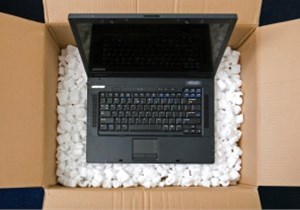When you hire a moving company to relocate the contents of your home from one place to another, there’s quite a bit of paperwork involved. Although it might seem like a hassle, this paperwork is for your benefit as well as our own, as it ensures your rights as a consumer are protected from start to finish.
Among the moving paperwork you’ll find a document called the Bill of Lading. This form is provided to you on the day of your move, and serves as the contract that outlines the details of your move. Your mover is required to provide you with a copy of this Bill of Lading at the time of loading/departure and to have you sign your approval of it before they head out.
By law, your Bill of Lading must include:
> Mover/motor carrier name and address (the original mover as well as any others who will be used during the transport process)> Name, address, and phone number of the mover’s offices
> Payment information, including forms accepted and maximum amounts due
> Your specific payment terms and conditions
> Dates of estimated delivery and/or pickup
> Any penalties or per diems that will be paid out if the mover is late in a guaranteed delivery
> ID number of the moving van/vehicle
> Evidence of insurance coverage
Most importantly, the Bill of Lading includes the information you and the moving company agreed upon in advance, including your binding or non-binding estimate (depending on which you opted for), the order for service, and the inventory loaded onto the van.
This last one, the inventory, is of paramount importance. Go over it carefully to ensure that all your belongings are included on the list before you sign it. This will ensure that should anything go missing or get lost in transit, you have proof that it was loaded onto the moving van. If it’s not on the list, there’s no way for you to prove that it was included in the shipment.
You will be asked to sign the Bill of Lading on the day of your move. Always ensure that it is completely filled out and that you understand the details before you sign—and then keep a copy close at hand. For a more streamlined move and to access services in the unlikely event that something happens to your delivery, the Bill of Lading will serve as your legal contract and proof of promised delivery.
See the article at https://www.allied.com/blog/view/all-blogs/2016/03/25/ask-allied-what-is-a-bill-of-lading
Subscribe to World Class Moving Systems's Blog




Comments